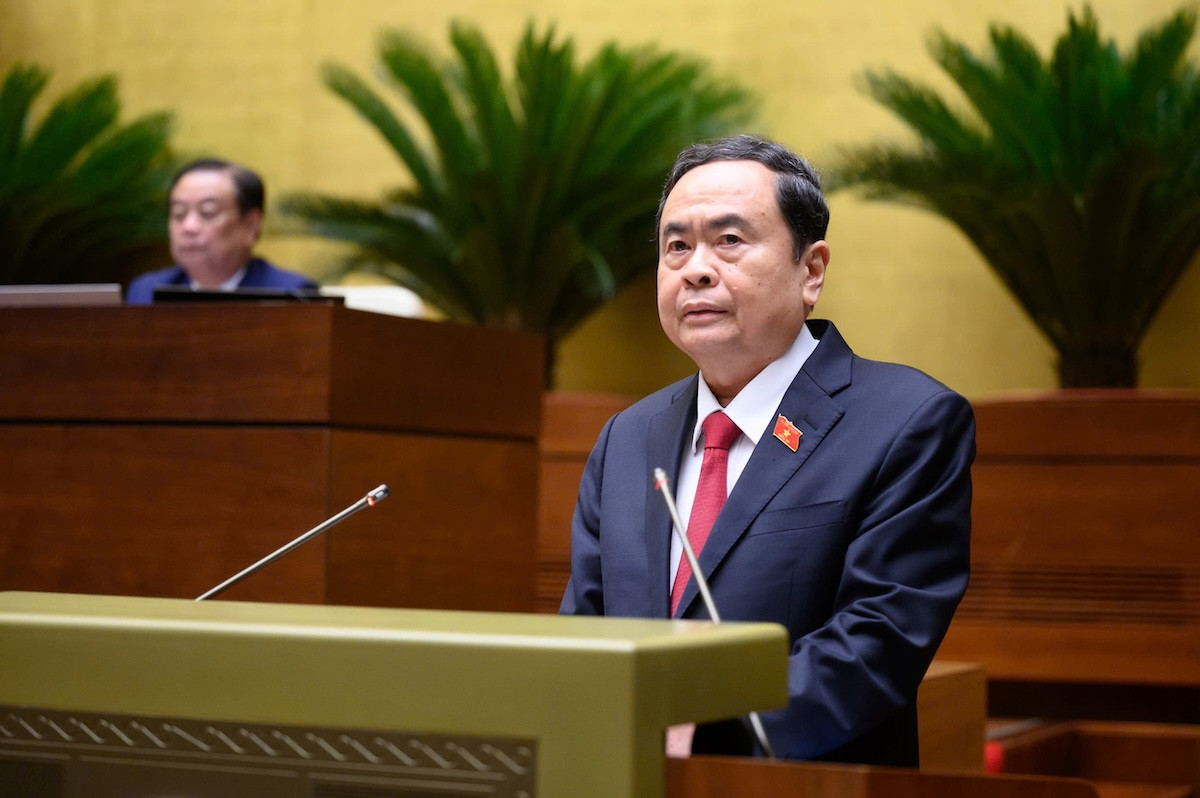In his opening speech, National Assembly Chairman Tran Thanh Man emphasized that the ninth session features the heaviest workload to date, covering a broad range of essential matters, including constitutional reform, lawmaking, top-level oversight, and major national decisions.

The 15th National Assembly's ninth session officially opened this morning (May 5) at the Dien Hong Hall. Present at the event were General Secretary To Lam, President Luong Cuong, Prime Minister Pham Minh Chinh, National Assembly Chairman Tran Thanh Man, along with senior leaders, former leaders of the Party and State, representatives of the Vietnam Fatherland Front, and National Assembly deputies.
Chairman Tran Thanh Man noted the unprecedented scope and importance of the session's agenda, highlighting constitutional and legislative work, supreme oversight, and other significant matters concerning the nation.
He also commended many officials and Party members who have voluntarily sacrificed personal interests for the development of their agencies and the nation.
Regarding constitutional work, the Chairman announced that the session will review and pass a resolution amending several provisions of the 2013 Constitution. This aims to institutionalize major Party directions promptly, especially in streamlining and enhancing the efficiency and responsiveness of state machinery.
A committee will be established to draft the constitutional amendments, and public consultations will serve as a foundation for refining the draft.
In tandem with constitutional tasks, the National Assembly will deliberate and pass 34 draft laws and 11 draft resolutions, while providing opinions on 6 additional bills. These cover state organization, national defense and security, justice, state capital management, finance and budgeting, education, science and technology, personal data protection, innovation, and digital transformation.
On economic and budgetary matters, the Assembly will review and decide on several strategic policies for socio-economic development, national defense, security, and international integration.
Specifically, it will approve the 2023 state budget final accounts; provide additional evaluations of the 2024 socio-economic and budget plans; and assess the implementation status of 2025’s plans to date.
The Assembly is also set to adopt a resolution on merging provincial administrative units; establish the National Election Council; decide on shortening the current (15th) National Assembly and People’s Councils' term (2021-2026); and determine the election date for the 16th National Assembly and the 2026-2031 term of local councils.
On the topic of supreme oversight, the Assembly will consider reports from the Central Committee of the Vietnam Fatherland Front, summarizing public and voter feedback submitted ahead of the session, as well as a report from the National Assembly’s Standing Committee on how citizen recommendations from the previous session were addressed.
A full day and a half will be allocated to question-and-answer sessions, focusing on areas closely tied to public life and state governance. The Assembly will also review the 2025 oversight program results and pass a resolution on its 2026 oversight agenda.
“With the above content, the ninth session carries historic significance, initiating a breakthrough in institutional reform as Vietnam enters an era of modernization, digitalization, greening, and sustainable development,” Chairman Tran Thanh Man affirmed.
The Vinh